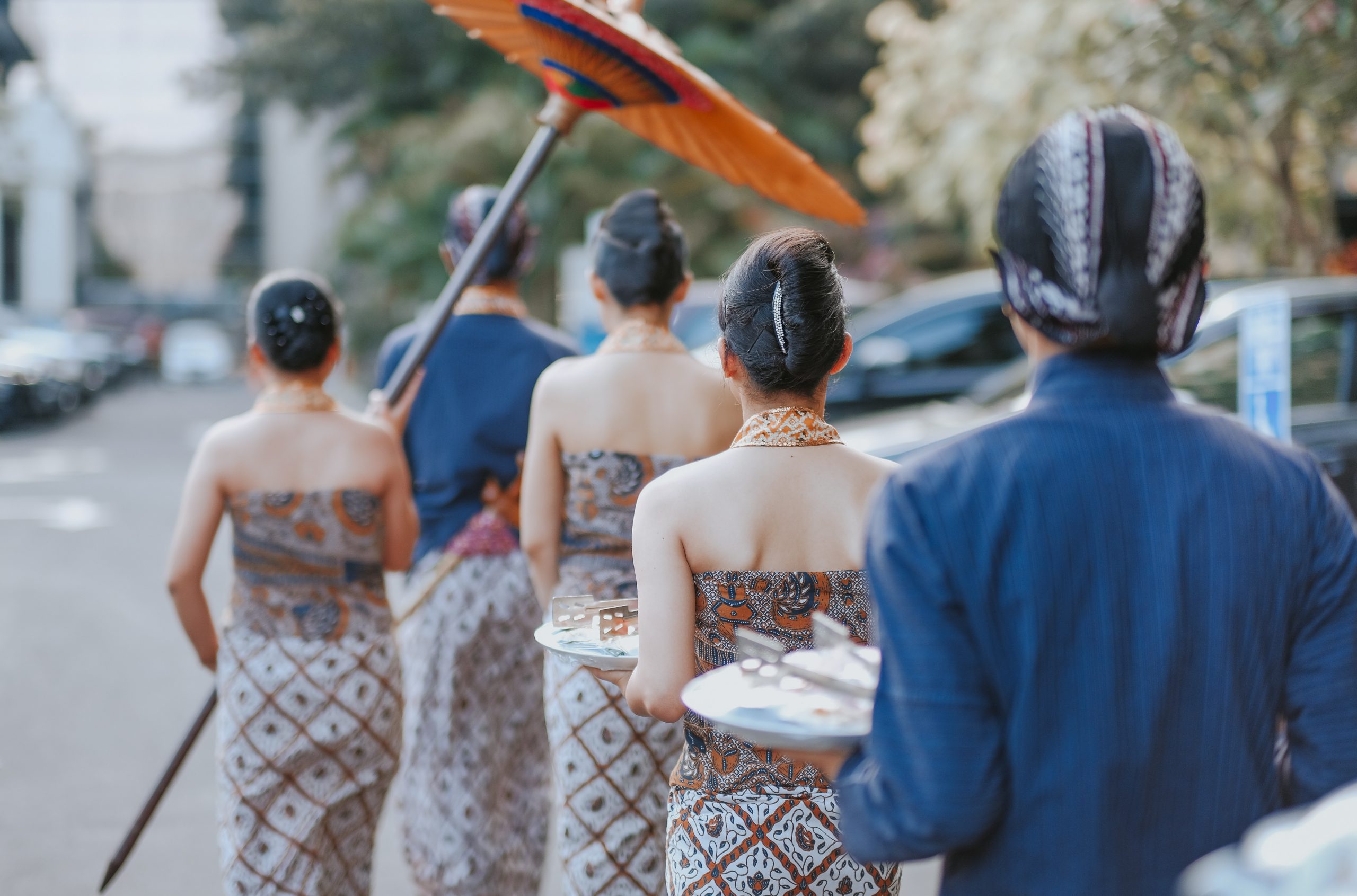The Many Faces of Multiculturalism

In this day and age, it is very common to see people from different cultural heritages living together in a single bounded territory. Since they live together, they happen to engage, collectively – either in a planned fashion or instinctively – in all kinds of activities in the social, economic, religious, educational, political, and economic domains. Principal cities in the world are more and more becoming multicultural, or most have already become. The plurality of cultures that portray multiculturalism is, indeed, great for the understanding of all shades of people. Go to any multicultural city, and you will see that the marked physiological differences among many a people, while they point to historically different cultural backgrounds, are also a mark of togetherness in many regions of life. Perhaps, the greatest advantage of multiculturalism is that it bridges the chasm of ignorance and arrogance. Let me further make clear this point.
I belong to culture y, and you belong to culture x. You are placed in an entirely different society from mine such that we do not have any direct or face-to-face interaction. I have read – and keep reading – that in your culture you eat with your hands, you have very minimal technology but much more contact with nature. Mine is directly opposite to yours because we eat with forks, spoons and knives. We are technologically advanced and use all sorts of electronic gadgets. I think apart from my belief that I am more physiologically refined, I also have a sophisticated lifestyle corroborated by the modern, imposing buildings that spread out in my society as well as state-of-the-art cars, information technology, and allied things. Since I have not met any of your kind before nor associated with any of you before, nor – most importantly – interacted with you before, I infer that my culture is superior compared to yours. I have closed my mind on this case, and I am not prepared to engage even in the least dialogue that could possibly reverse my opinions. Most people in my culture think in like manner about culture x, for the constant barrage of selective news that they view, listen to, or read within the environment of culture y have solidified their opinions. Above all, I have concluded that culture x is drenched in backwardness while mine is riding on the pinnacle of progress and splendid classiness.
Suppose I see your kind, say a man from culture x, for the first time, then I’m likely to show my pomposity and think I am better than your kind. Nevertheless, it is not only my looking down upon culture x that is the issue. The ignorance that arises from my viewpoint and the viewpoint of most members of my culture also generates discrimination. Assume, further, that the physiological differences between members of my culture and members of culture x – as I have seen many a time in the media – are marked, then I am inclined to be a racist, either by choice or by the nature of circumstances. And these are some of the major difficulties that societies other than multicultural societies bestow on lives.
Having said the above, I am not, in any way, claiming that multicultural societies are not fraught with difficulties. What is good about multicultural societies is that the above-stated problems tend to dissipate or diminish with the progress of time in view of the collective activities and willpower of all shades of people. Even so, there are vital areas of life in multicultural societies that seem to contradict the advantages I have outlined.
The entire edifice of multiculturalism wobbles when one seeks to address important questions in the areas, for example, of the laws and mores that shape multiculturalism. Ask: whose laws are they? And whose mores are they? It is true to say that multiculturalism is a fairly recent phenomenon, and since this is the case, whatever constituted the society prior to multiculturalism lacked, by the anticipated logic, laws and mores with the multicultural tinge. The consistent and progressive replacement of the original culture with a multicultural culture, owing to the massive flow of immigrants, may lead to the revision of original laws and mores; they prompt high-level stakeholders – policy makers, so to speak – to reexamine the held laws and mores without uprooting, for better or for worse, the bedrock culture. A multicultural society has to deal with the troubling issue of compromising its bedrock culture with a new culture, and the compromise becomes extremely difficult the more multicultural groups press for the restructuring of the previous culture in order to drastically reshape – especially – the economic, political, and educational systems of the society.
Suppose policy makers agree to the demands of immigrant pressure groups – that because the society has changed to possess a multicultural face, everything else should change, everything from business to politics to laws to mores to education – then the question of which immigrant group or groups’ demands should be incorporated into new policy decisions becomes the emerging desideratum. Logically, it is almost not feasible to implement such demands, nor is it, at first impression, practically expedient; for concessions to one immigrant group or some will engender persistent demands from disgruntled groups, and policy makers will then have to address new problems that were previously unforeseeable, or, at the very least, trivial. Lovers of a revolution or reasonable anarchists may support the uprooting of the dominant culture. Whether, therefore, a multicultural society slots in other multicultural values or not into the dominate laws and mores, difficulties arise in addressing the concerns of all immigrant groups to ensure harmony in all the conceivable areas of life. To insist that members of subcultures have to fully adapt to the values of the dominant culture presupposes that plurality of cultures are irrelevant in the field of cultural truths. This is palpably wrong given that truths in culture are tied to values in culture; and values differ in any number of ways.
Perhaps, there has to be some kind of balance between the needs of all immigrant groups and the customary needs of the society prior to multiculturalism. Indeed, the more the restructuring of previous needs are made to reflect, as widely as possible, on all multicultural groups without endangering the stabilized identity of the society, the better. Yes, subcultures exhibit living experiences that cannot be relinquished in favour of the dominant legal and moral acts of their “new” society; but varied social values have some reconcilable traits that are capable of being reshaped or connected to generate a striking uniformity. This is the area of human experiences that need to be explored and utilized to streamline the wishy-washy edges of multiculturalism. And this does not presume objective truths in culture but human conformity.
Consider the issue of education. It is, perhaps, the most sensitive area of multiculturalism. If members of subcultures are formally educated in a way that marginalizes their respective principles of life, then this is likely to spawn some kind of inferiority among most of its members, and, of course, frustration. Patterns of belief are largely shaped by the dominant educational system in place. Parental education inculcates unique values in children. Children’s search for additional values is largely directed by acquired family values. But parental education does not proceed in isolation; it is wedded to the overall value system that shapes the entire society. Here, educational values play a major role. Am I, the son of an immigrant – hence belonging to a subculture – expected to abandon my fundamental values in place of the values of the dominant culture? Since I am a student in my new cultural environment, what role can the school education play in amplifying and solidifying my family values? Does the school system incorporate a study of the accomplishments of leaders from my subculture?
Often, the leaders that students are likely to study and idolize in the classroom come largely from the dominant culture. Is it any wonder, then, that sub-culture students feel inherently humiliated while dominant-culture students get elevated with regard to their respective egos? The question of appropriate assertiveness, confidence, effective body-language skills, among others, that are essential job needs stem largely from this educational panorama. Put differently, dominant-culture students experience a continuous reinforcement of self-esteem unlike sub-culture students. However, exceptions are granted.
School people or analysts who tend to explicate any outstanding dissimilarity between subculture students and their counterparts in terms of levels of structured intelligence will do well to take account of the historical foundations of school curricula and their impact on academic performance. Intelligence, in whichever form this very broad term is viewed, is not culture neutral but tailored to meet the fashioned requirements of the dominant culture. The dominant curricula in school replicate the dominant culture, not subcultures. Subculture students who follow such curricula are trapped in helpless contradictions unless they choose to be fully integrated into the dominant culture. Their thinking and dispositional attitudes proceed as a constant battle, explicit or implied, between the value system of the dominant culture and those of subcultures.
Besides these complex problems, the population of the dominant culture vis-à-vis the subculture tends to diminish in size. Naturally, authorities at high places (from the dominant culture) may use every means necessary to protect their numbers. A common technique may be to clandestinely reserve top-notch jobs for members of its class. What this does is to retain the power dynamics, prevent the subculture population from overshadowing the dominant culture, and, of course, make room to use power as a tool to suppress the agitations of members of the subculture. Employment discrimination, subtle racism, among others, may crop up from this state of affairs. Thus, while many areas of human nature are similar, other areas resist logic in line with humans’ need to crave for power whenever the object is to promote security in life.
If multiculturalism is unable to undo a dominant culture and give equal credibility to all subcultures, it shows how the principles of multiculturalism stand in need of outright revision in order to cater for the varied forms of social consciousness and value systems.
Multiculturalism is a welcome addition to human dignity. It fosters a better understanding of human kinds. It disintegrates ignorance and distrust between or among human kinds. It builds the edifice of culture on a new ground full of vitality. It supplants the rather dry uniformity of non-multicultural societies. It warns or forbids ignoramuses from being openly discriminatory or racists. It advances the principle that race consciousness may be irrelevant, especially in the light of a global village. It, above all, helps to build international relations in a pleasing direction.
Maybe, a bold social experiment that uproots the dominant culture in favour of the principle: “let us build everything afresh!” could engender an encouraging synthesis of laws, mores, education, business, and the rest. This unusual experiment, this untested undeavour, this revolutionary activity, may be far more a blessing than a curse. Maybe, it is time to undertake such an experiment.









